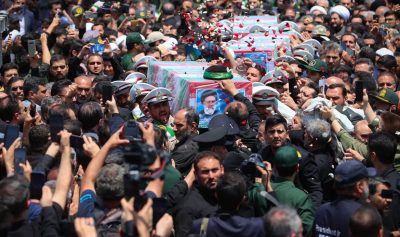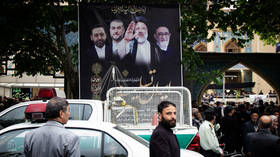US: Iran Ships Pose As US Warhips To Jam Oil Tankers’ GPS

The U.S. Maritime Administration has issued a fresh warning regarding commercial shipping in the Persian Gulf and the key oil chokepoint the Strait of Hormuz, saying that vessels in the area may encounter GPS interference and “spoofed bridge-to-bridge communications from unknown entities falsely claiming to be U.S. or coalition warships.”
“Vessels operating in the Persian Gulf, Strait of Hormuz, and Gulf of Oman may also encounter GPS interference, bridge-to-bridge communications spoofing, and/or other communications jamming with little to no warning,” the latest advisory reads.
In at least two of the incidents in the Middle East in the past months, vessels reported GPS interference, according to the U.S. Maritime Administration.
“Vessels have also reported spoofed bridge-to-bridge communications from unknown entities falsely claiming to be U.S. or coalition warships,” the advisory says, advising that U.S.-flagged commercial ships provide plans for when they would be transiting the Strait of Hormuz and immediately inform the U.S. Fifth Fleet Battle Watch if they suspect they are “being hailed from a source falsely claiming to be a U.S. or coalition naval vessel.”
“The United States is committed to safeguarding freedom of navigation, the free flow of commerce, and the protection of U.S. vessels and personnel in this region,” the U.S. Maritime Administration said.
The U.S.—whose President Donald Trump said in June that countries that get their crude oil via the shipping routes in the Middle East should protect their own ships along the lanes—is trying to garner a broad international support for escorting oil tankers in the Gulf after the recent incidents. However, so far only the UK has said it would join the U.S. in protecting tankers after a UK-flagged tanker was seized by Iran last month.
Last month, Khalid al-Falih, the energy minister of the world’s largest crude oil exporter and OPEC’s biggest producer, Saudi Arabia, urged countries buying crude oil to secure the free navigation of tankers in the Strait of Hormuz.
By Tsvetana Paraskova for Oilprice.com
Related Articles:
The United States has formally asked Germany to join France and Britain in a mission to secure the Strait of Hormuz and to combat Iranian aggression, the US Embassy in Berlin said on Tuesday, reports Reuters. At a time of heightened tension between the United States and Iran, Washington has proposed stepping up efforts to safeguard the Strait of Hormuz in the Gulf, through which about a fifth of the world’s oil passes.
It’s hard to know how much of the Iran situation is simply noise. The problem is that we can go from noise to a genuine crisis in the blink of an eye due to the tight geography of the Strait of Hormuz.
It is funny – for decades we have never had any problems with commercial ships passing through the Persian Gulf, but all of a sudden it has become a major flashpoint. As you will see below, the Iranians are now warning that they plan to “secure” the Strait of Hormuz, and meanwhile a plan for a European-led naval task force to confront the Iranians is rapidly coming together....
The United States is concerned that a "miscalculation" by Iran could cause an "unintended conflict" in the Gulf, as it prepares to launch a new surveillance and intelligence initiative with its allies to ensure "free and open passage" for ships. "We are starting a concept called Sentinel in which we will have a series of countries engaged to preserve the free and open passage of commerce in the Strait of Hormuz and in the Persian Gulf," US Under Secretary of Defense for Policy John Rood said at the Aspen Security Forum on Saturday.
The British government told its commercial vessels to avoid the strategic Strait of Hormuz after Iranian forces seized a UK-flagged oil tanker there, prompting a row with London. “We have advised UK shipping to stay out of the area for an interim period,” a government spokesperson said on Saturday. The decision was made after the cabinet convened for an emergency meeting in Whitehall.



